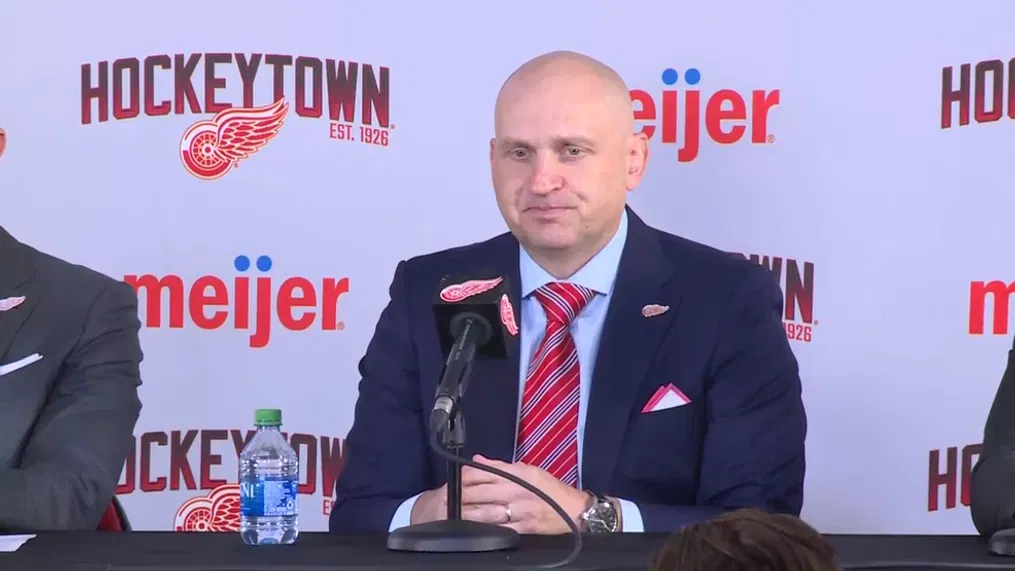
The Detroit Red Wings are currently facing a storm of controversy following a harsh critique from head coach Derek Lalonde regarding the performance of several key players. On August 25, 2024, Lalonde’s public comments on the preseason performances of veterans Dylan Larkin and Filip Hronek have sparked a significant backlash, creating ripples both within the team and among the fanbase.
Lalonde’s remarks, made during a post-game press conference, were sharply critical of Larkin and Hronek’s performances in recent preseason games. The head coach expressed frustration over what he perceived as a lack of commitment and accountability from these veteran players. “We need more from our leaders,” Lalonde stated. “If we’re going to compete at a high level, everyone, especially our experienced players, needs to step up their game.” His blunt assessment has been met with surprise and disappointment from various quarters.
Dylan Larkin, the team’s captain and a central figure in the Red Wings’ leadership group, responded to the criticism with a mix of defensiveness and resolve. Larkin acknowledged the coach’s concerns but also emphasized that public criticism could potentially undermine team morale. “We’re all committed to improving and winning,” Larkin said. “We understand the need for accountability, but I believe there’s a more constructive way to address these issues.”
Filip Hronek, a key defenseman, also addressed the situation in a media briefing. Hronek expressed his disappointment over Lalonde’s approach, suggesting that private conversations might have been a more appropriate channel for such critiques. “We’re working hard to prepare for the season,” Hronek noted. “Public criticism doesn’t help us focus on the goals we need to achieve as a team.”
The backlash against Lalonde’s comments has been swift and widespread. Fans and analysts are divided on whether the head coach’s approach was justified or counterproductive. Some supporters argue that Lalonde’s tough love is necessary to push the team towards greater performance standards. Others, however, believe that his public criticism could erode trust and cohesion within the locker room, potentially affecting team chemistry.
In response to the backlash, Lalonde attempted to clarify his position in a follow-up interview. He explained that his intention was to motivate and challenge his players rather than demoralize them. “My goal is always to bring out the best in each player,” Lalonde said. “I believe in our group and want to see them reach their full potential. My comments were meant to be a wake-up call, not a personal attack.”
As the Red Wings prepare for the upcoming season, the controversy surrounding Lalonde’s critique adds another layer of complexity to the team’s dynamics. The situation has highlighted ongoing concerns about leadership, communication, and team unity. How Lalonde and the players address these issues in the coming weeks will be crucial in determining the team’s success.
The fallout from this controversy will likely influence the Red Wings’ approach to team management and coaching moving forward. Both Lalonde and the players will need to navigate this challenge carefully to ensure that the team remains focused and motivated as they enter the new season. The resolution of this situation will be closely watched by fans and analysts alike, as it may have lasting implications for the Red Wings’ performance and cohesion.

Leave a Reply